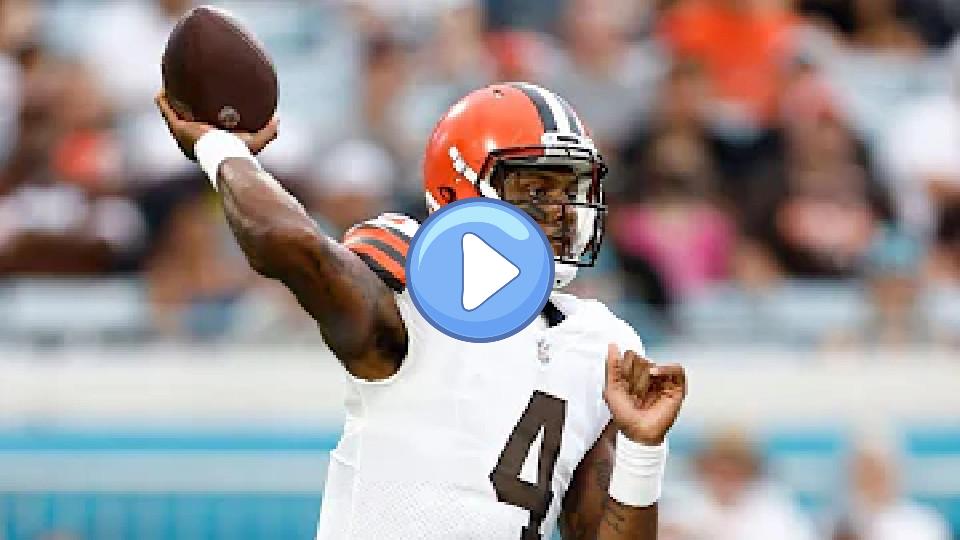Deshaun Watson's Sports Injuries
Type of Sport: American Football
Deshaun Watson's Sports Injuries Table
| Type | Area | Date | Consequences | Content | How It Happened | Recovery Duration | Rehabilitation Details | Impact On Career | Psychological Impact | Previous Injuries | Return To Competition | Severity | Treatment | Medical Staff | Long Term Impact | Preventive Measures | Competition Missed | Initial Symptoms | Re Injury Risk | Support System | Rehabilitation Location |
|---|---|---|---|---|---|---|---|---|---|---|---|---|---|---|---|---|---|---|---|---|---|
| Chest Injuries | Chest | 2018-10-13 | Played through injury but limited in practice | Watson suffered a partially collapsed lung and broken ribs after taking multiple hits during a game. Despite the injury, he continued to play. | Sustained multiple hits during a game against the Dallas Cowboys | Several weeks | Limited practice participation and focused on healing naturally with rest and monitoring. | Short-term impact on performance; no long-term effects reported. | Displayed toughness and commitment to his team. | Right Knee ACL Tear | Continued playing through the season | Moderate | Rest and close medical supervision | Houston Texans medical team | No long-term impact reported. | Improved protection and awareness of hits during games. | No games missed | Chest pain and difficulty breathing | Low; with adequate rest and recovery. | Team medical staff and coaching support | Houston Texans facility |
| Knee Injuries | Left Knee | 2017-11-01 | Torn ACL | Deshaun Watson tore his left ACL during a practice session with the Houston Texans, ending his rookie NFL season. | During a non-contact drill in practice, Watson suffered a knee injury. | 6-9 months | Underwent surgery and followed an extensive rehabilitation program. | Missed the remainder of the 2017 NFL season but returned to form the next year. | Faced mental challenges but showed resilience. | Had a similar injury in the right knee in 2014. | 2018-09-09 | Severe | Surgery and physical therapy | Houston Texans medical team | No significant long-term impact; continued to perform at a high level. | Focused on strengthening both knees and overall conditioning. | Missed the remainder of the 2017 season. | Knee pain and instability. | Moderate, considering the history of ACL injuries. | Support from Houston Texans organization and personal network. | Houston Texans facilities |
| Knee Injuries | Right Knee | 2014-11-07 | Torn ACL | Deshaun Watson tore his right ACL during a game against Georgia Tech, which ended his freshman season at Clemson. | During a game against Georgia Tech, Watson suffered a knee injury. | 6-9 months | Underwent surgery to repair the ACL and followed a structured rehabilitation program. | Missed the rest of the 2014 season, but returned strong the following year. | Faced challenges but remained mentally strong and motivated. | None reported prior to this incident. | 2015-09-05 | Severe | Surgery and physical therapy | Clemson medical team | No significant long-term impact reported; returned to high performance. | Strengthening and conditioning exercises focused on knee stability. | Missed the remainder of the 2014 season. | Pain and instability in the knee. | Moderate, typical for ACL injuries. | Strong support from Clemson coaching staff and family. | Clemson University facilities |
| Knee Injuries | Right Knee | 2017-11-01 | Season-ending injury | Deshaun Watson tore his right ACL during a practice session. The injury was a non-contact incident and occurred while he was making a cut. This was a significant setback for Watson, who was having an outstanding rookie season. | During a practice session, while executing a non-contact drill. | 9-12 months | Underwent surgery to repair the torn ACL, followed by extensive physical therapy and rehabilitation to regain strength and mobility in the knee. | Missed the remainder of the 2017 season but made a full recovery to return for the 2018 season. | Initially challenging, but Watson remained positive and focused on his recovery, often sharing updates and motivational messages with fans. | None reported to the same knee prior to this incident. | Returned for the 2018 NFL season opener. | Severe | Surgical reconstruction and physical therapy | Team doctors and orthopedic specialists | No long-term impact reported; Watson has continued to perform at a high level. | Strengthening exercises and wearing a knee brace during initial return to play. | Missed the remainder of the 2017 NFL season | Immediate pain and instability in the knee, unable to continue practice. | Moderate but managed with proper rehabilitation an | Strong support from team, family, and fans. | Team facilities and specialized rehabilitation centers. |
| Sprains | Left Ankle | 2019-11-02 | Played through the injury with some mobility limitations | Watson sprained his left ankle during a game against the Jacksonville Jaguars. He continued to play but was visibly limited in his mobility. | Rolled ankle during a game | 1-3 weeks | Ankle braces, ice therapy, and physical therapy sessions. | Minor; short-term impact on mobility. | Minor frustration but remained focused on recovery. | Right Knee ACL Tear, Chest Lung Injury | Continued playing through the season | Mild | Rest, ice, compression, and elevation (RICE) along with physical therapy. | Houston Texans medical team | No long-term impact reported. | Ankle strengthening exercises and wearing supportive footwear. | No games missed | Pain and swelling in the ankle | Moderate; requires ongoing preventive care. | Team medical staff and personal support network | Houston Texans facility |
Deshaun Watson's Sports Injuries Videos
What's Wrong with Deshaun Watson? Doctor Explains
Deshaun Watson's shoulder injury, specifically a 'deep' rotator cuff subscapularis injury, has been confusing for fans. Dr. Brian Suterer explains that the subscapularis muscle, part of the rotator cuff, is crucial for internal rotation during a throw. This injury affects Watson's ability to drive the ball forward, which relies heavily on the subscapularis. The injury likely resulted from direct impact rather than a throw, and while it is painful and requires time to heal, it is not expected to be a long-term issue.

Deshaun Watson Injury Explained | Dr. Jesse Morse on What Happened & Recovery Timeline for Browns QB
Deshaun Watson will miss the remainder of the 2023 season due to a newly discovered glenoid fracture in his throwing shoulder. Dr. Jesse Morris, a sports physician, explained that Watson's injury involves a fracture in the ball-and-socket joint of the shoulder, specifically the glenoid, which is part of the scapula. This type of injury is serious as it causes a piece of bone to displace, making it unsafe for Watson to continue playing. Attempting to play through it could have led to further damage and possibly required a shoulder replacement in the future. Despite the injury, Watson's near-perfect performance in the second half of his last game was remarkable. Recovery from this type of injury is expected to be around six to nine months, with Watson likely being ready by OTAs in June or July 2024.
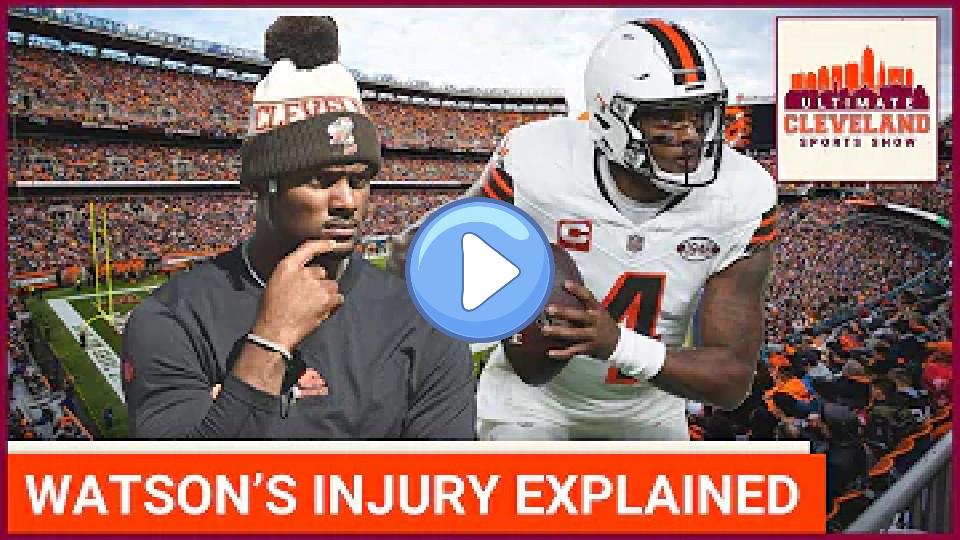
Deshaun Watson Injury (NFL Week 14, 2020)
Third and goal for the Texans, Matt gets hit as he throws, and it's out of bounds. Roquan Smith came through, and Watson is catching his breath. The Texans have emphasized running the ball this drive. AJ McCarron is set to come in as Watson is clearly in pain after taking a hit from Bears pressure. Timeout.
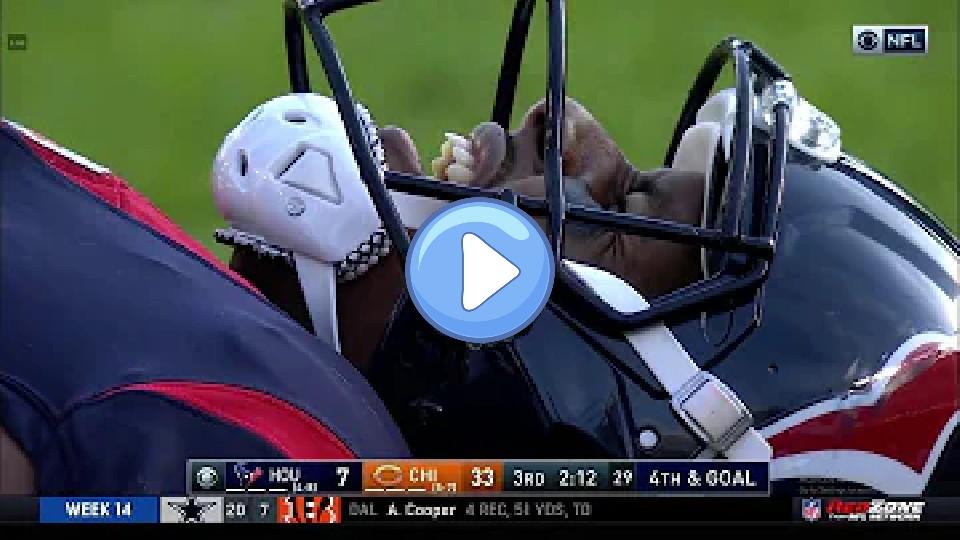
Deshaun Watson Suffers Scary Head Injury vs. Colts
Kevin's defense shows concern as they watch Watson go down, with his head snapping back onto the turf.
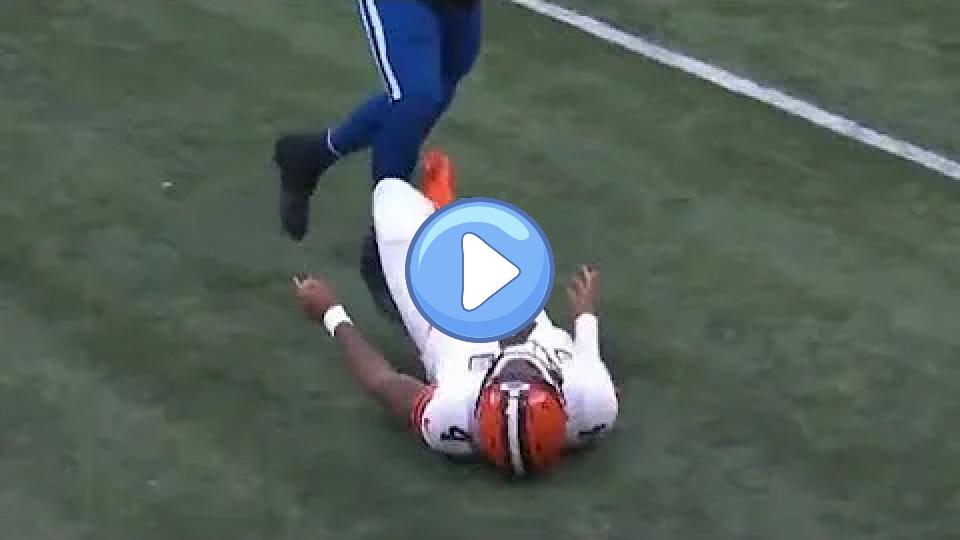
No one understands what Deshaun Watson is about to do...
Deshaun Watson is set to prove his critics wrong this season after a challenging three years. Despite an injury ending his 2023 season, he's making excellent progress. The Cleveland Browns are counting on him to perform as the team aims to capitalize on their current window of opportunity. The video breaks down Watson's performance, highlighting his ability to read plays, use his mobility effectively, and make smart decisions under pressure. While he has struggled at times, the focus is on staying healthy and leveraging the team's strengths, particularly the running game and offensive line. Key acquisitions and player potential, like Jerry Judy's, are also discussed, emphasizing the importance of Watson's return to form for a successful season.
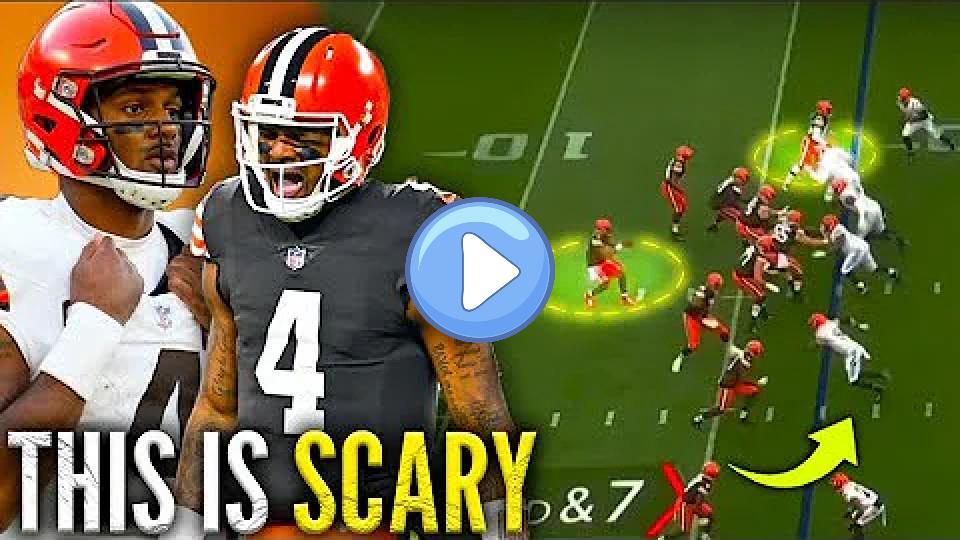
TJ Watt's Big Hit on Deshaun Watson | NFL Week 3
In NFL Week 3, Deshaun Watson attempted a deep pass on third and 15, but it was intercepted by Mike Hilton. Following the interception, T.J. Watt delivered a big hit on Watson. Despite the hit, Watson appeared to be okay, and the Steelers took possession of the ball.
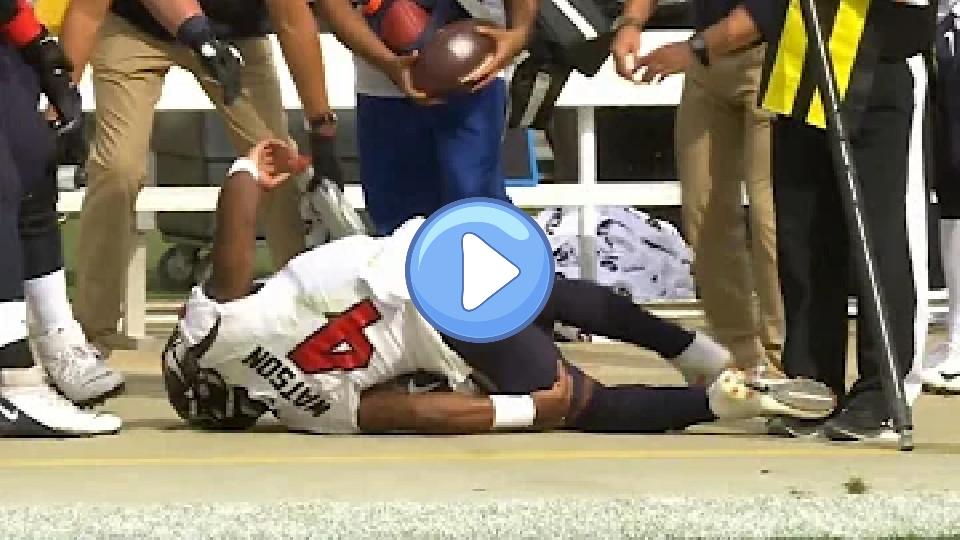
Where do the Browns go next following QB Deshaun Watson's injury?
The Cleveland Browns are facing a challenging situation with the injury of their star quarterback, Deshaun Watson, who has a fractured glenoid in his shoulder, sidelining him for the season. Despite having a strong defense, the Browns' offense is struggling without Watson, and they are now relying on backup quarterback PJ Walker. The team has already dealt with significant injuries, including losing Nick Chubb and their starting tackle Jack Conklin for the season. The Browns, who were performing well with a 6-3 record, now face uncertainty in their playoff hopes, as they need to maintain their performance with a tough schedule ahead.
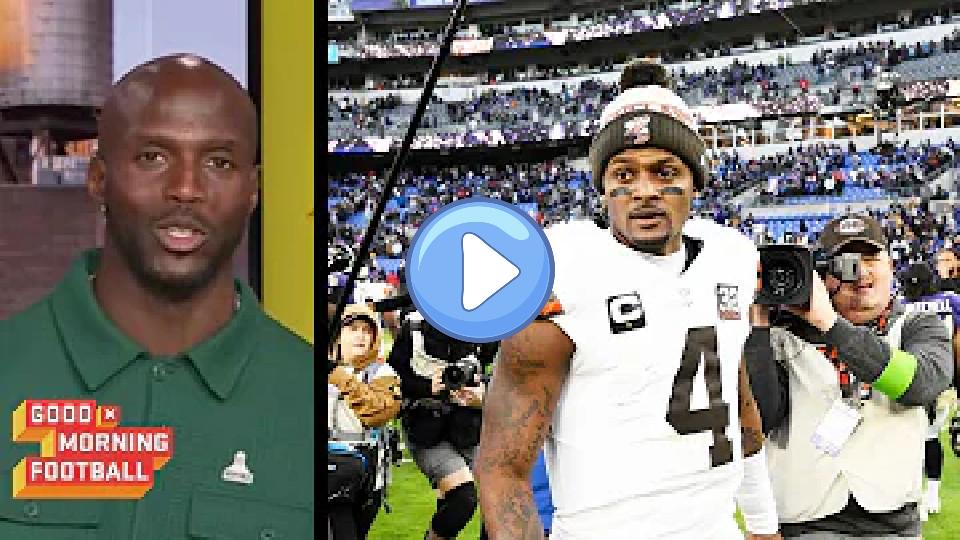
Deshaun Watson suffers shoulder injury in win against Colts 😣
Cleveland Browns QB Deshaun Watson left the game in the first quarter after a helmet hit the turf. He was evaluated for a concussion and cleared to return, but Coach Kevin Stefanski chose to keep him out to prevent further injury. Watson, who had a previous shoulder injury, expressed hope that it is not worse. Stefanski confirmed Watson as the starter for the next game in Seattle, but Watson emphasized the need to monitor his shoulder throughout the week.

Can Deshaun Watson Finally Be the Star the Browns Thought They Were Getting? - Sports4CLE, 7/11/24
Dave Bacon and Quincy Carrier discuss the Browns and Deshaun Watson as they enter the 2024 NFL season. Watch Sports4CLE...
